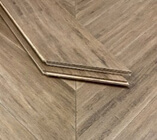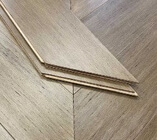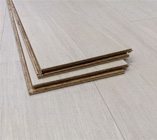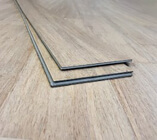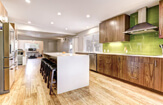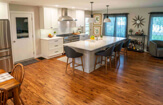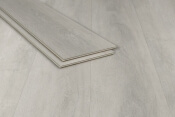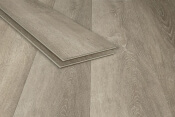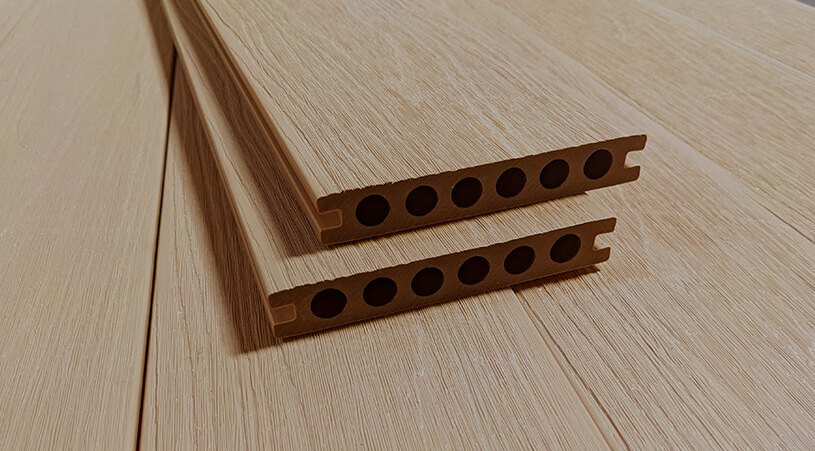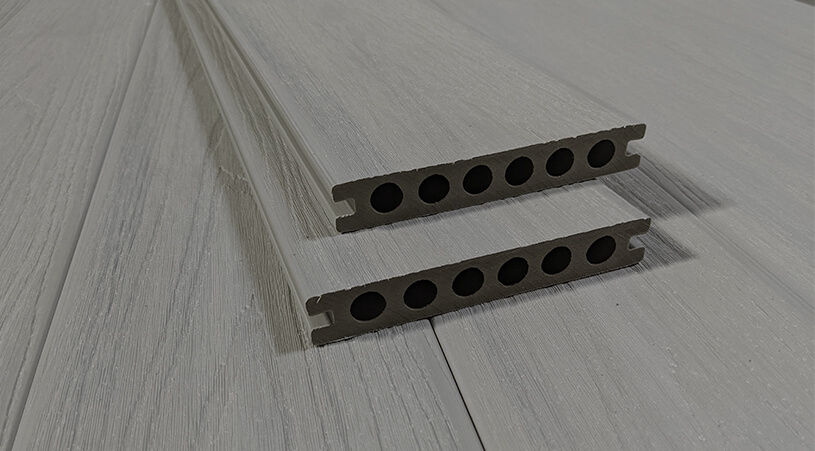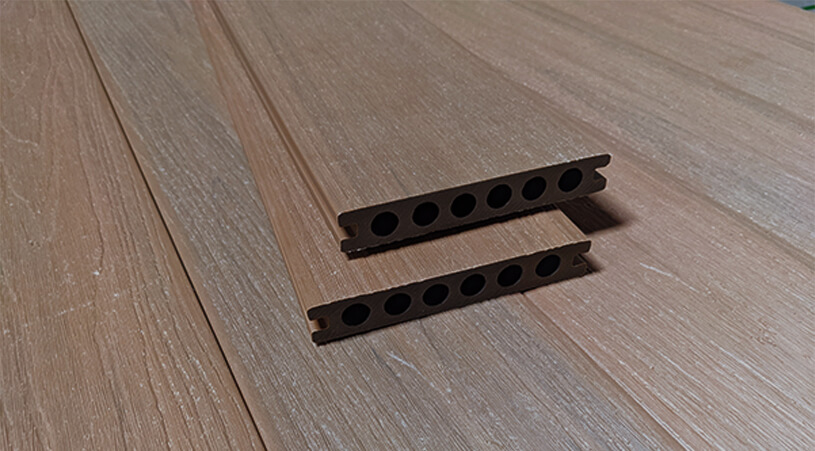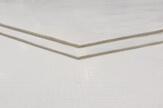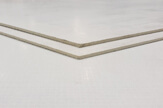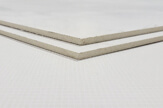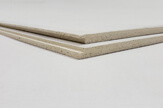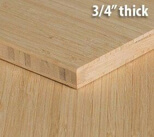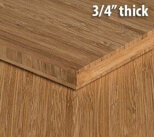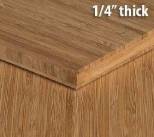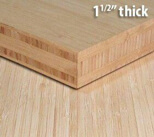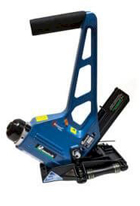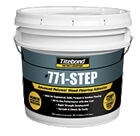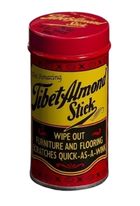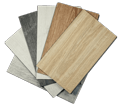Wondering if you can install bamboo flooring in your kitchen?
Good question! Bamboo is a great flooring choice for the heart of the home for many reasons. We'll discuss all of them below.
5 Reasons Why Bamboo is the Perfect Choice for Kitchens
You're likely here because you want an answer to the burning question: is bamboo flooring good for kitchens? Well, indeed it is - for these reasons:
- Bamboo is highly resistant to moisture/water damage.
- Bamboo is hard and durable, making it perfect for high traffic areas.
- Bamboo rarely (if ever) requires refinishing in a residential setting.
- You can nail or glue bamboo under kitchen cabinets and islands.
- You can glue, nail, or float (click lock) bamboo over concrete.
Now, let's tackle some of the worries you might have about choosing bamboo flooring for your kitchen. Trust us; it won't take long to see why it's the perfect choice for this room in your house.
What happens when bamboo flooring gets wet?
In other words, is bamboo flooring good for kitchens and bathrooms where there's water and humidity? In fact, it is because bamboo handles moisture well.
Some bamboo, like rigid core bamboo flooring, is 100% waterproof. Can't beat that! All prefinished bamboo flooring, meanwhile, is pre-sealed to protect against liquids and moisture. Plus, most strand bamboo provides up to 30 hours of spill protection from puddles.
So if your bamboo flooring gets wet, simply wipe up the spill — it’s that easy! This is one of the many reasons why bamboo flooring is a popular choice among homeowners for kitchens and bathrooms.
What Happens When Bamboo Flooring Gets Dirty?
We can all appreciate that bamboo floors withstand water so well. But what about dirt and grit and spills? Is this type of flooring easy to clean?
We're happy to report that bamboo and vinyl are two of the easiest flooring materials to keep clean (yay!) They both have smooth, slick surfaces that don't trap dirt or dust.
Routine care using regular bamboo flooring products will keep your bamboo kitchen floor looking like new!
Can I Install Bamboo Under My Kitchen Cabinets?
The simple answer is yes - as long as you plan to nail or glue down your bamboo floor planks. Nailed or glued-down bamboo can handle the weight of kitchen cabinets or an island just fine.
If you plan to float your flooring, however, you shouldn't install it under your cabinets or island. This is a general rule of thumb for all flooring materials. Floating floors – no matter the material type – aren't designed to hold all that extra weight.
To get all the details, check out our helpful guide on how to install bamboo flooring under cabinets and islands.
Is Bamboo Flooring a Good Choice for High Traffic Areas Like Kitchens?
Yes! Why? Because bamboo rarely dents. In fact, strand woven bamboo is the hardest type of flooring available on the market.
Don't believe us? Look at the world-renowned Janka hardness scale. You'll find it listed right at the top.
Did you know that making strand woven bamboo requires 1,800 metric tons of pressure? That's equivalent to 3,968,320 pounds or around 345 elephants sitting atop the flooring to compress and harden it. Whoa.
In fact, its hardness beats out every single type of traditional hardwood, including teak, cherry, rosewood, and walnut.
So when people ask us if engineered bamboo flooring is susceptible to scratches, we say absolutely not! Although nothing is 100% scratch-proof, bamboo flooring comes close.
On top of all that, high-quality bamboo flooring typically has a finish that protects it from stains and moisture.
To learn more, read our article: Does Bamboo Flooring Scratch Easily?
This durability makes strand woven bamboo an excellent choice for your kitchen floor. No worries if you drop a soup can, cast iron skillet, or heavy appliance. Walk all over it day in and day out, and there still won't be any dents to speak of. Trust us, you won't be able to find a better flooring material for your kitchen!
Does Bamboo Flooring Come in Different Textures and Finishes?
Naturally, you wonder how bamboo will look in your kitchen. Will it match your decor? Does it come in different textures and finishes? How does it compare to the look of wood floors?
Rest assured that bamboo comes in various finishes. Even better, some of them help hide stray scratches (which, as we established above, are rare):
- Light colors
- Darker colors
- Matte finishes with aluminum oxide
- Distressed and hand-scraped
Bamboo flooring comes in a variety of colors to match every decor
If you're unsure how bamboo will look in your kitchen, Ambient® offers the option to order a free sample piece. Hold it up to your furniture and walls. Compare various types of bamboo flooring before committing. We understand - it's an important decision.
How Will I Protect My Bamboo Floor from Damage?
If you buy your bamboo flooring from Ambient®, its Accuseal Ultra® premium finish will protect it. You won't have to worry about stains or damage from moisture.
However, there are several easy things you can do to keep your beautiful floors safe:
- Put felt protectors on the feet of furniture
- Use mats in entryways and underneath large appliances
- Vacuum or sweep regularly to remove dirt
- Place chair mats under any rolling office chairs
- Avoid walking in high heels on the floor
Will I Ever Need to Refinish My Bamboo Floor?
One of the best things about bamboo flooring is that you probably won't ever need to refinish it. As we've mentioned already, it is extremely durable, long-lasting, and scratch-resistant.
However, what's even better is that if you ever WANT to refinish it for whatever reason, you can! And then it'll look brand new again for a fraction of the original cost. Nice!
To refinish your bamboo floor, simply sand down the surface and apply a fresh coat or two of finish. For more details, check out this in-depth article about how to refinish bamboo flooring.
Will My Bamboo Floor Stain if I Spill Food or Liquids on It?
The easy answer here is no, most likely not. While there are pros and cons to everything, one advantage of bamboo flooring is its moisture resistance.
In fact, rigid core bamboo flooring is highly water resistant. Wow!
Strand woven bamboo, meanwhile, offers 24-hour protection against spills and puddles. It withstands water better than most types of hardwood. Moreover, it'll retain its shape after drying out (no warping).
So, in other words, no worries if you spill tomato sauce on the floor or drop a hot casserole. Wipe it up, and it'll be like it never happened.
The only liquid that's an issue is pet urine. Like every other type of floor, urine can cause damage if left on it for more than 14 hours.
Will Mold Ever Grow On My Bamboo Floor?
Well, that sounds awful. Nobody wants mold growing anywhere in their house, honestly. Fortunately, this is one thing you don't need to worry about at all with bamboo flooring.
Not only is bamboo environmentally friendly, it's also naturally hostile to mold. So even if you leave water on your floor, chances are basically zero that you'll ever see any mold. Thank goodness!
We do advise calling in a professional, however, if your kitchen ever floods.
Will Humidity Affect My Bamboo Floor?
Nope! This is a common myth about bamboo.
High-quality bamboo is actually much better at handling humidity than most other floor options. In general, it won't shrink or swell.
If you DO notice any shrinking or swelling, it's likely the result of:
- Improper installation (the installer left too much or too little room around the edge of the floor)
- Improper environment settings (the humidity has changed more than 20%, causing the planks to drastically change size)
- Improper manufacturing (the manufacturer failed to moisture balance the bamboo planks sufficiently)
In most scenarios, bamboo floors handle humidity without any issues - even in a hot and heavily used kitchen.
How Hard is it to Clean a Bamboo Floor?
Cleaning a bamboo floor is easy. Honestly! You won’t need to do anything special. Simply sweep or vacuum it like you would any other floor.
To clean it more thoroughly? Occasionally, use a lightly damp mop and an approved hardwood floor cleaning solution.
As a reminder, never steam mop a bamboo floor - or any hardwood floor, for that matter. (This would introduce way too much moisture.)
For a full set of care instructions, feel free to check out our bamboo flooring cleaning and care guide.
And there you have it. Hopefully, we've answered the burning question of the day: Is bamboo flooring a good choice for kitchens? In our opinion, it's not only good, it's great. Why? Let's list the reasons one more time:
- Bamboo is highly durable
- It doesn't easily dent or scratch
- It handles humidity well
- It doesn't easily stain
- Bamboo is extremely eco-friendly
- You'll probably never have to refinish it
- You can install it under your kitchen cabinets and islands
- It comes in a variety of textures and finishes
- Bamboo is a cinch to clean
So how good is bamboo flooring for kitchens? You'd better believe that it's an amazing flooring option. Give it a try - order your free sample today!
 (866) 710-7070Talk to an expert!
(866) 710-7070Talk to an expert! 0 Cart$0.00
0 Cart$0.00
 0
0 

